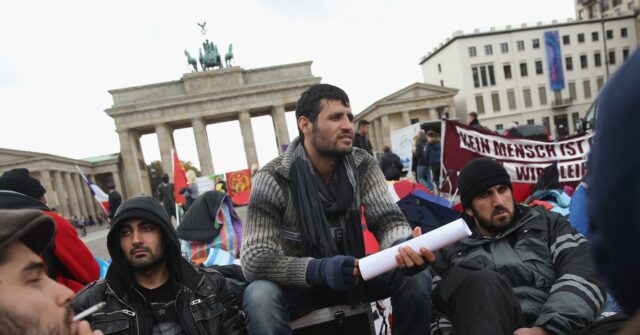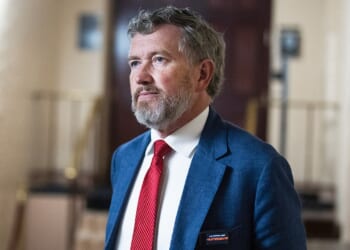The German people are increasingly concerned about safety in public spaces compared to before the 2015 migrant crisis, which was imposed on the country by the Berlin establishment.
Nearly half of German voters say they are personally concerned about their safety in public, according to the Deutschlandtrend survey by the Infratest Dimap opinion research institute, which surveyed 1,300 eligible voters between November 3 and 5.
According to the survey, 48 per cent of Germans feel uneasy in parks, public squares, streets, or trains and buses. This represented nearly a 100 per cent increase over the past decade, the pollster noted.
Safety concerns were more common among German women, at 53 per cent, compared to 43 per cent of men surveyed. The study did note, however, that it was more common to be concerned with thefts and verbal threats rather than sexual assault, murder or terrorism.
Regardless, German paper of record, Die Welt, said of the results: “Anyone comparing the current situation in Germany with that of 2015 might almost think they are two different worlds. Over the past ten years, the public’s view of the Federal Republic has darkened dramatically.”
Government statistics have found that since 2015, migrants have been involved in at least 2.8 million crimes across Germany. This perhaps undersells the criminality, however, given that it does not include immigration offences, or crimes committed by migrants who have been granted German citizenship.
The growing unease coincided with the mass influx of migrants into Germany after former Chancellor Angela Merkel chose to unilaterally open up the gates of Europe to supposed asylum seekers from the Middle East and Africa a decade ago.
The failures of the open borders policies, which both main establishment parties in Berlin backed, have redounded to the benefit of the populist anti-mass migration Alternative for Germany (AfD).
According to the survey, 47 per cent of the pblic agree with the statement: “I think it’s good that the AfD wants to limit the influx of foreigners and refugees more than other parties”.
A further 52 per cent of the people said that the AfD has “understood better than other parties” that “many people simply no longer feel safe in our country”.
A seperate survey from the RTL/ntv Trendbarometer found that the AfD continues to lead all parties at 26 per cent support, increasing its lead over the centrist CDU/CSU of Chancellor Friedrich Merz, and his leftist coalition partners, the Social Democrats, remain well behind in third at 14 per cent.
















